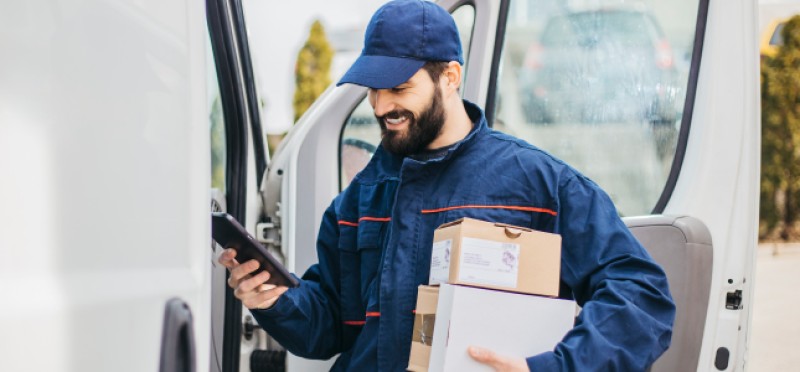It’s morning, and you ask Siri to find local cafes. A chatbot takes your order on your phone, and where an autofill inputs your email. Whether or not we always know it, automation has become an unescapable aspect of our day-to-day lives as consumers. So much in fact, that the robotic process automation (RPA) market is estimated to reach $5 billion by 2024 according to Global Market Insights, Inc.
Yet everyday automation isn’t always thoughtful automation. All too often users encounter poor interfaces, difficulty understanding accents and dialects, and fractured experiences.
That’s why it’s essential to get automation right from the first moment a user interacts with the device. We’ve rounded up three examples of companies that have nailed the mark to show how automation tools can bring out the best in customer experience.
Sticking to the story
Chatbots are made to have easy, straight-to-the-point conversations with users. And if a user follows a certain etiquette using proper grammar, simple questions, and keywords, it should all go smoothly. Unfortunately, neither the bot nor the human is perfect, and like real conversations they can be clunky, unstructured, and steer off topic.
For many bots, a jumbled conversation can throw off its algorithm and it may direct you to an associate, completely contradicting the point of automation. As highlighted in the Wall Street Journal, Drift.com has developed a chatbot system that is able to steer the conversation back into the original context of the queries -- even when it has been off topic for some time.
According to the article, this formula is based on the system utilizing machine learning that analyzes examples of various sales interactions to create a better picture of how to direct a customer’s conversation. It then interjects with a crucial piece of information or valuable sale opportunities that the customer was originally concerned about.
Why it matters: A conversational chatbot that cannot redirect itself when it hits a roadblock can be detrimental to the customer experience. Automated services that can intelligently redirect or steer the conversation to the original intent of the customer will undoubtedly stand out.
A chatbot for the last mile part of the experience
Industries such as package delivery and mailing are full of ups and downs. There are delays, damaged products, and constant tracking updates. U.K.-based parcel delivery company Hermes needed to find opportunities to help customers at these points along the journey. The organization recently deployed an Oracle digital assistant (chatbot) named Holly to helps assist with chat volume, delivery data, and simple queries.
A Forbes article explains that the chatbot helps users with the simple inquiries about shipments. But one essential element Holly also helps with is assisting smaller businesses with the “last mile,” that final leg of the customer journey where the product is being transported to its destination. The article points out that there is a growing market for independent contractors in the U.K. whose livelihoods depend on delivering a package. The chatbot works together with them to help make a key employee experience less stressful. “In effect, Hermes is a conduit, feeding 15,000 small business owners with data and product so they can complete the final deliveries,” says Chris White, Hermes’ director of customer experience, in the Forbes article.
Why it matters: Utilizing digital assistants to solve the easy problems is great and certainly frees up agent’s time. But automation can provide even more value it can provide meaningful opportunities to improve key moments in a customer or employee journey.
A robot that listens and learns
Automated technology doesn’t just mean a chatbot behind a screen. Bossa Nova, a robotics startup, has been rolling out a self-patrolling robot within stores that repeats similar tasks to a human -- if that employee were a tall, metallic robot on wheels.
As per a Business Insider article, the robot’s responsibilities range from monitoring store aisles and stock to checking prices and keeping a watch out for other abnormalities. Over the years Walmart has taken an interest in the robot and is planning to insert Bossa Nova’s machine in around 350 stores after a 50-store test.
In addition, the robot can feed retailers with real-time data. The article says that while Bossa Nova installs and manages the robots, it can sell the data it generates to retailers. Co-founder Sarjoun Skaff described this to Business Insider as an opportunity to provide the retailer with insight on their store operations and an opportunity to map the retail world.
Why it matters: In the future, automated services will balance the role of assisting customers and successfully managing data. Used ethically, the data collected through automation can be essential to offering more relevant products and services in retail.
Automation will continue to evolve as an essential part of customer service. But as it grows, it’s up to organizations to provide meaningful interactions along the way that can help users get more out of their interaction than they originally intended to.















